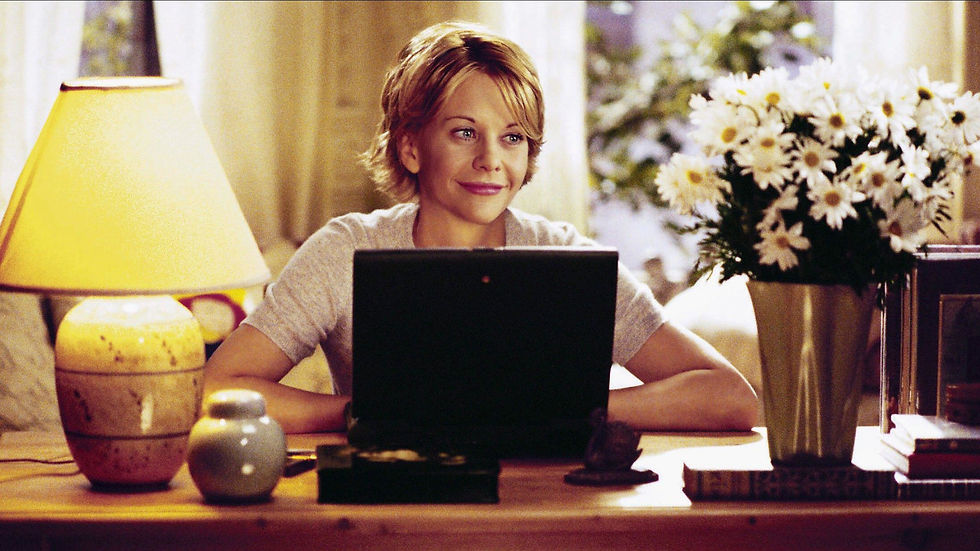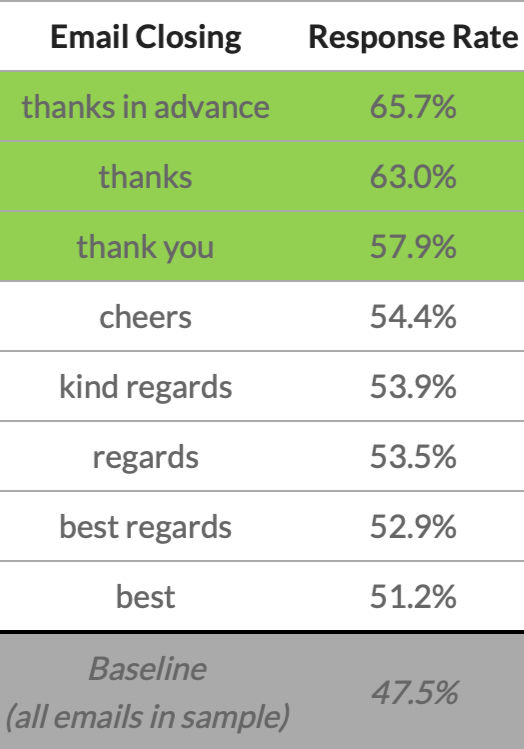Signed, Sealed, Unhinged: What Your Email Sign-Off Tells The World
- Aug 7, 2025
- 3 min read

When Stevie Wonder dropped Signed, Sealed, Delivered in 1970, he probably didn't imagine it would become the unofficial anthem of the modern workplace. Today, your email sign-off is corporate Morse code. It's a few words that quietly reveal your role, your mood, and sometimes, your slow descent into madness.
Last week, I was on a call with my friend Ben. He mentioned he'd never use "Sincerely" or "Regards" to close an email. I was speechless because those have been my go-tos since grad school.
So why do sign-offs matter? Are they fluff? Or could a careless choice make you seem like you do not value your professional opportunities?
In a world where perception is everything, how you end an email says more about you than the information you are trying to convey. It reflects how others perceive your tone, your authority, and emotional state.
Ready to work smarter, not harder, with your sign-offs? Let's break it down.
Gif courtesy of Wix.
Ain't No Lie: The Science Behind Email Goodbyes
Gif courtesy of Wix.
Emails communicate ideas between two parties. But often, they do not. In fact, they frequently serve as unintended tools of miscommunication. Depending on the time of day, the most important email you will ever write can get lost in a busy inbox, sent to spam, misconstrued, or result in another 45-minute debrief.
There are several reasons why emails may fail to convey your message effectively. The main reason is that emails remove facial expressions and tone of voice (Wiederman, 2025). Consequently, you can never fully grasp the whole meaning of an email.
What Your Email Sign-Off Says About You
Your email sign-off says more about you than your Myers-Briggs. In the corporate world, it shows your tone, intent, and sometimes emotional state.
Gif courtesy of Wix.
Regards
Professional? Yes. Warm? Not really.
If you're using "Regards," you're keeping it formal and playing it safe. It's a solid choice for cold outreach, first-time clients, or those moments when you want to signal just enough distance to stay polished. It's not rude. It just doesn't ask to be friends. Think corporate handshake energy.
Sincerely
This is the little black dress of email sign-offs.
It's classic, clean, and gets the job done, especially in formal emails like cover letters or cold intros. But in most modern workplaces, "Sincerely" can feel a little stiff. If you're using it, you're signaling that you respect formality, structure, and write in complete sentences with punctuation. No shade.
Thanks
You're friendly, efficient, and likely have a specific need.
"Thanks" is the people pleaser of sign-offs, but in the best way. It's polite without being stiff and subtly nudges the recipient to follow through. If you say "Thanks in advance," you're either wildly optimistic or slightly passive-aggressive, but studies show this might yield that coveted ROI.
The Secret To Getting An Answer to Your Email: The Correct Sign-Off
In a 2017 study, Boomerang uncovered which email sign-offs yield the most replies. If the goal of any email is to confirm that the recipient reads your message, understands it, and follows through on the task, then it’s crucial to know which sign-offs will make people stop whatever they’re doing and respond.
The study found the following sign-offs to have the best response rate.

In other words: don’t underestimate the power of politeness.
Signed Off, But Not Checked Out
Your email sign-off needs to be international. It's the last thing someone reads before deciding whether or when to respond.
Whether you're a "Regards" or "Sincerely": remember your salutations signal more about you than your recipient.
So before you hit "Send," pause for a second. Choose words that sound like you — and the kind of impression you want to leave behind.
Because in work, like in life, how you sign off mirrors how you show up.
Gif courtesy of Wix.
Citations
Wiederman, M. W. (2025, February 17). The psychology of work email: 6 tips for more effective work email messages. Psychology Today. https://www.psychologytoday.com/us/blog/mindful-professional-development/202502/the-psychology-of-work-email




Comments